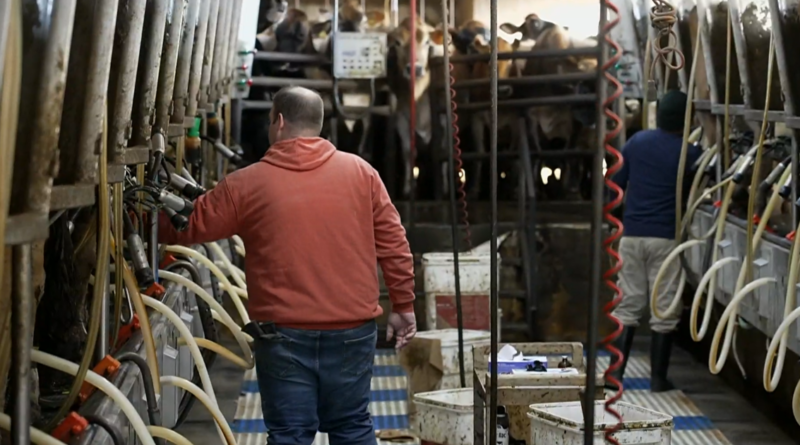How Trump’s plan to deport undocumented immigrants threatens the workforce for U.S. farm workforce
Talk to any farmer, and they’ll tell you it is difficult work.
“This is a 24-hour job,” New York dairy farmer Nate Chittenden told CBS News. “So I need people who are willing to work in shifts at different times of the day.”
But Chittenden says it is difficult to find those workers.
All this as American farms are on the decline. There was a 7% drop in farms from 2017 to 2022, according to the U.S. Department of Agriculture, about 142,000 fewer farms in just five years.
Farmers are facing several challenges in keeping their businesses running, including climate change, bird flu outbreaks and higher costs for feed and fertilizer. Now, many of America’s farmers must face the possibility of the Trump administration uprooting a huge part of the workforce with its threat of deporting millions of undocumented immigrants.
“It’s a lot of hands to hand-harvest fruits and vegetables,” New Jersey farmer Kurt Alstede said.
More than two-thirds of U.S. crop workers are foreign born, according to the USDA. Many of them came to the country through the H-2A visas, but officials estimate that 42% of the workers are undocumented migrants.
Since his first day in office, President Trump has already issued a slew of executive actions to start reshaping federal immigration and border policies. Many of them are expected to face significant legal challenges, but the administration has created fear an uncertainty in the community.
United Farm Workers, a labor union, says there has already been an uptick in migrants asking for help.
“The threats are scary, but at the same time, farm workers, more than anyone, understand the reality that without them, this work is not gonna get done,” said UFW communications director Antonio De Loera.
Alstede told CBS News that while his workers are legally authorized, he’s watching Mr. Trump closely to see what his administration will do next.
“Anything that happens from a policy standpoint that reduces people in our workforce is gonna make it very difficult for industry and certainly for agriculture,” Alstede said. “We would be in big trouble if we lost workforce.”
Fewer workers could mean less homegrown produce, according to University of Montana economist Diane Charlton.
“Because we have been importing a lot of these foods already, the consumers might not see a really big impact in the grocery stores, but there will be less domestically grown fruits and vegetables,” Charlton said.
It’s still unclear exactly how Trump’s mass deportation plan would affect farm workers. CBS News reached out to the White House for comment, and it reiterated the president’s commitment to “deporting migrant criminals.”


